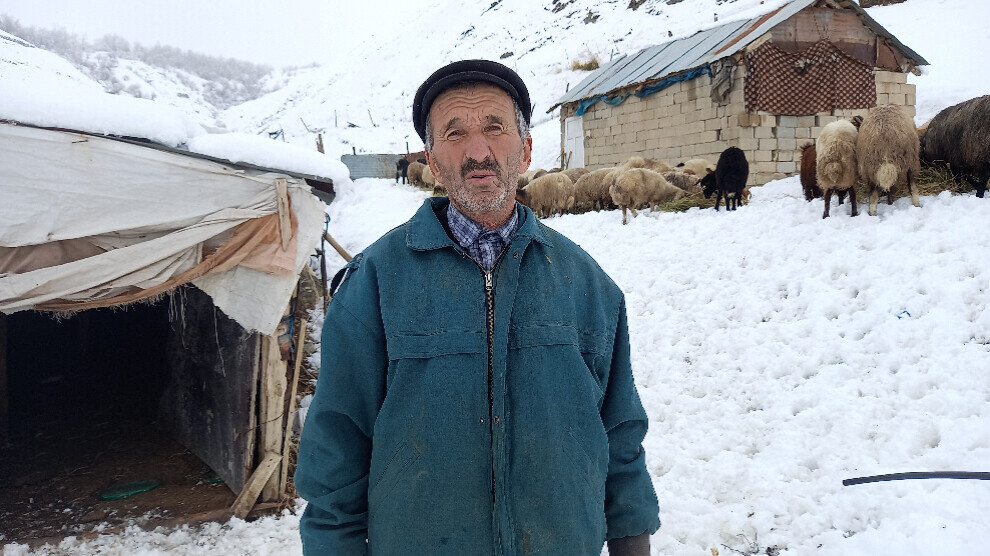Economic crisis and early snowfall hit animal husbandry in the Kurdish region
The economic crisis in Turkey continues to affect animal husbandry. Farmers are worried about the price rise in animal feed and hay amid early snowfall.
The economic crisis in Turkey continues to affect animal husbandry. Farmers are worried about the price rise in animal feed and hay amid early snowfall.

The economic crisis in Turkey has reduced the purchasing power of people. Due to the economic crisis and high prices, people are unable to buy many products, especially food.
The economic crisis has not only hit the food sector, but all sectors, including animal husbandry.
Animal husbandry is the main source of livelihood in Kurdistan. Currently, millions of people in Kurdistan earn money from animal husbandry in their villages. Animal husbandry, the traditional livelihood of the Kurds, is going through hard times as the severe economic crisis hits the country. A bale of hay, which cost 10 Turkish Lira (TL) last year, has increased to 50 TL this year, while one ton of straw has increased to 5 thousand TL, which cost a thousand TL a year ago. Moreover, a 50-kilogram feed bag has increased from 60 TL to 500 TL.
WE CANNOT FEED OUR ANIMALS
Halil İhtiyatoğlu, who has been doing animal husbandry in Hakkari for years, said that the early snowfall interrupted farmers’ activities amid the ongoing economic crisis. İhtiyatoğlu remarked that farmers could not buy grass and hay for their animals due to the high prices. “The snow has fallen very early this year. Grasses we were planning to collect for our animals remained under snow. We could not operate the irrigation system we had installed for irrigation of our fields and gardens, as the grass was covered in snow. We are financially devastated. There is famine in the country. The economic crisis is affecting us adversely in every aspect. We can no longer take care of our animals. Hay, grass and animal feed prices have skyrocketed. A bale of grass which cost 10 TL last year costs 50 TL this year. Furthermore, the prices of food have also increased significantly. A small can of tomato paste costs 50 TL, a bag of flour is 600 TL. We can barely afford our basic needs. There is already a serious crackdown on us and the economic crisis has worsened this persecution.”